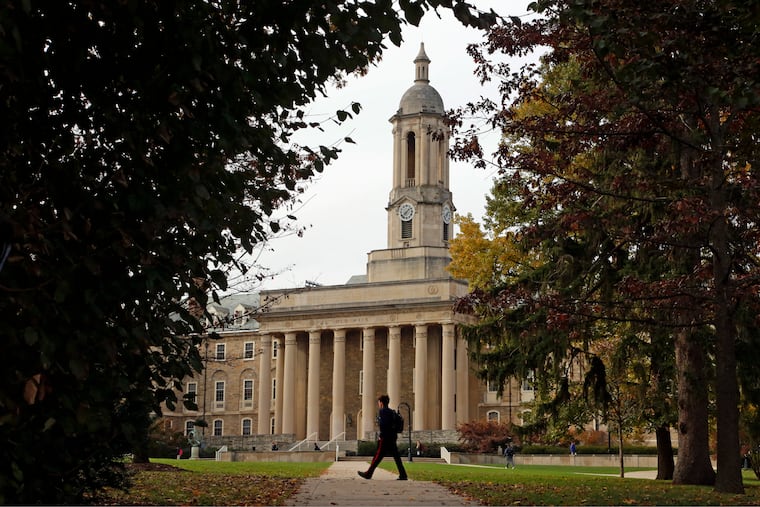Pennsylvania State University says it is reapplying for a U.S. Department of Agriculture (USDA) grant to avoid losing $27 million meant to help farmers.
The grant, formerly known as Partnerships for Climate-Smart Commodities, was targeted to be cut under the federal Department of Government Efficiency (DOGE) as the Trump administration realigns priorities.
In April, U.S. Secretary of Agriculture Brooke Rollins announced cancellation of the Biden-era program, which she called a “green new scam,” and replaced it with a new program.
Penn State was awarded a $26.9 million grant in 2023 as part of Climate-Smart. Under the grant, Penn State was to administer funds designed to expand markets for dairy farmers; ranchers; and fruit, vegetable, and row croppers; as well as agroforesters — while helping those farms institute sustainable practices.
Penn State said in a statement that “the USDA invited awardees to reconfigure their grants to align with a relaunched version of the program titled the Advancing Markets for Producers (AMP) initiative.”
The name change to AMP came as DOGE seeks to cut grants for programs such as those seeking to address climate change or environmental justice. In Rollins’ announcement of the name change, she left out any mention of climate change, suggesting it would no longer be a priority of the grant.
As a result, Penn State plans to submit an AMP application by the Friday deadline.
“The funding is a critical lifeline for agricultural producers throughout the commonwealth as they continue to navigate environmental challenges to safeguard our nation’s food supply,” Penn State said.
The USDA did not respond to a request for comment.
What changed
Under the original Climate-Smart program, farmers were to use practices that reduce greenhouse gas emissions or sequester carbon. Pennsylvania had 30 projects covering 48 major products and 102 farming practices.
But Rollins said the national project “had sky-high administration fees which in many instances provided less than half the federal funding directly to farmers.” She also said farmers had complained about red tape associated with the program.
Rollins said some projects might continue if they demonstrate “a significant amount” of the money will go to farmers, who would be encouraged to “ensure their projects are farmer-focused or reapply to continue work that is aligned with the priorities of this administration.”
As a result of the change, Penn State has to reapply for the AMP grant, or lose the money, much of it destined for farmers and other partners. It is unclear how Penn State’s fee to administer the program would change.
What was Climate-Smart?
Hundreds of projects were awarded grants under Climate-Smart, and many organizations are now resubmitting them.
Although Climate-Smart was aimed at reducing carbon dioxide and methane, the range of farming practices it was to address was sweeping.
A note on the USDA website said online pages devoted to Climate-Smart are under review and may be removed. They were still live as of Wednesday, including a fact sheet about Pennsylvania’s program.
Among the regenerative practices encouraged nationally were crop rotation for conservation, contour farming, creating buffer strips, planting cover crops, testing groundwater, installing waste treatment lagoons, and planting hedgerows. Other practices sought to reduce fossil fuel emissions.
Pennsylvania-specific practices included grazing to reduce wildfire risks to forests, soil health improvements, establishing pollinator habitats, building compost facilities, better animal waste storage, and use of no-till farming, which is a way to grow crops without plowing the soil.
Penn State was one of seven lead partners on its original Climate-Smart application. Other partners were the American Farmland Trust, Dairy Farmers of America, Maple Hill Creamery, Pennsylvania Association for Sustainable Agriculture, Rodale Institute, and Handsome Brook Farms.
Some agricultural trade publications have reported that the Trump administration has left the program largely intact, even though it has been renamed, and that the bulk of the original grants are likely to still be paid.
